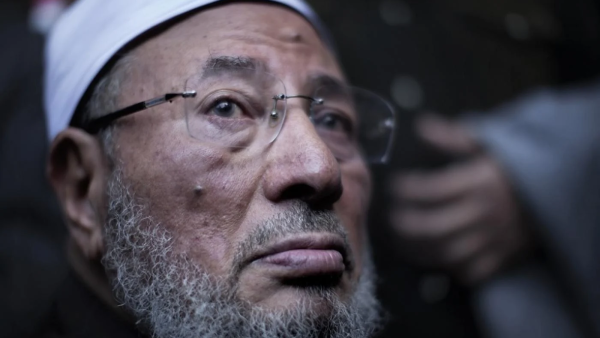The death of Yusuf al-Qaradawi, a prominent author of Islamist thought, recalls attention to the decline of Islamism in the Sunni world. For decades, its proponents have championed al-Qaradawi’s brand of Islamic governance with democratic and pluralist qualities across the Middle East. But their rising irrelevance indicates that the ideology’s purchase on regional politics is spent.
Since Islamism emerged as a vigorous force in MENA politics in the latter half of the 20th century, its proponents have repeatedly drifted in and out of favour of Arab regimes. Once decisively out, and navigating repression, scholars have often warned that it would be hasty to write off their influence in regional affairs; or as was recently argued with reference to the present condition of the Egyptian Ikhwan, it is "too soon to write the obituary of Islamism.”
Once decisively out, and navigating repression, scholars have often warned that it would be hasty to write off their influence in regional affairs
Those who declared its death decades ago were indeed proved wrong by Islamism’s forceful return in 2011.
Thus, the logic of this present caution stems from the spirited survivals – and then revivals – of Islamist organisations negotiating state repression. With such precedent, so the argument proceeds, we should not exclude their presence from future scenarios in MENA politics.
But though Islamists may occasionally re-emerge as fragments of social protest, there are compelling reasons to believe that their time as a meaningful political force, in governance or opposition, has expired.
The sense of Islamism’s ending was perhaps best expressed by the wizened Ibrahim Munir, acting head of the Egyptian Ikhwan, in an interview with Reuters in July. Munir declared that the organisation has renounced its ‘struggle for power,’ through either electoral or violent means. However, given the movement lacks the ability to do either at present, the words felt empty and lame.
Of the little that remains of the Ikhwan, its road back into Egyptian public life continues to be blocked by the Sisi regime, whose unaccommodating mood is unlikely to yield given the exclusion of the Ikhwan from the national dialogue announced earlier this year.
And even in the improbable event of social protest and political change, Egyptian institutions, and sizeable segments of population, have proved their unwillingness to permit the Ikhwan fair competition in an open system; acknowledging there can be no Arab democracy without Islamists, many willed and enabled its removal in 2013.
Strategic pressure on Turkey to sever its relations with the Islamist organisation, by virtue of its rapprochement with Egypt, is also a growing anxiety for its members; the present imperatives of geopolitical realities question how long Ankara will deem its privileged hospitality to the Ikhwan, with whom it sympathises ideologically, worthwhile.
Of the little that remains of the Ikhwan, its road back into Egyptian public life continues to be blocked by the Sisi regime
But internally too, the organisation is shot through with lassitude and conflict. Unlike prior repressions, the overriding goal of regime change and governance was attained; however, the experience was of wasting achievement. With Ikhwan members now emptied of fantasy and filled with disillusion, the reserves of strength which sustained the organisation in prior periods of repression are likely lacking.
The repression and exile of the Egyptian Ikhwan is an almost universal condition for proponents of Islamism today. Now that the counterrevolutionary forces which frustrated the 2011 Arab Uprisings have subdued the Tunisian anomaly, members of its largest and religiously conservative party, Al-Nahda, may soon face the obstacles thwarting their Islamist relations across the region.
This was confirmed by the chilling news last month that Rachid Ghannouchi, former speaker of Tunisia's dissolved parliament and president of the al-Nahda movement, has been summoned to a police station facing accusations of supporting "terrorism" – a dubious charge which exploits his prior Islamist leanings.
But even before the initial currents of repression which promise to drag Tunisia back into a pre-revolution state of autocracy, Al-Nahda consciously sought to shed its Islamist colours on entering mainstream politics. Its strategy spoke of the necessity of blunting Islamism into a bland conservatism in order to practice politics in an ideologically divided society.
And where Islamists have submitted to state co-option in a bid to elude repression, such as in Morocco, they have fared no better. In 2021, the moderate Islamist party, the PJD, was decisively removed through the ballot box, losing 90% of its parliamentary seats. Such results reflect popular distrust with the party over its failings in government.
In contrast, the Islamist organisation, Al Adal wa Ihsan, has retained its popularity by refraining from Moroccan politics and submitting to the monarchy. Although they have long been an illegal outfit, tolerance has generally defined the state’s attitude towards them. But this has shifted in recent years, and the Islamist group is now being choked by state repression.
Hunted by autocrats rinsing the region of the Arab Spring, and unable to use electoral politics when fleeting opportunities do surface, the political rebirth of Sunni Islamism in any number of future scenarios seems implausible.
Hunted by autocrats rinsing the region of the Arab Spring, and unable to use electoral politics when fleeting opportunities do surface, the political rebirth of Sunni Islamism in any number of future scenarios seems implausible.
It therefore appears that the only variation of Islamism which will endure are its more personal forms: namely, those exemplified in mainstream Salafism. Most Salafi groups have avoided politics entirely and rarely broken faith with their patronage of autocrats.
Indeed, their autocratic sympathy or apathy has helped Salafis grasp a truth originally divined by Islamists in the 20th century but fatally resisted in 2011: that social, rather than political, activism is the most effective and durable strategy for growing the role and convictions of Islam in public life.









